Rambam Hilchos De'os Chapter 7
The Laws of Gossip, Loshon Hara, Revenge, and Harboring Grudges
41 min
Rambam Mishneh Torah
- August 5, 2020
- |
- 15 Av 5780
Rabbi YY Jacobson
914 views- 15Comment
- Call-in
Listen to the class on the phone
Call +1 (845) 201-1933
When prompted, dial the ID number below.
7669 MP3 MP4 Source Sheets - Copy Embed
Class Summary:
This class, in Rambam the Laws of De'os, chapter seven, was presented on Wednesday Parshas Eikev, 15 Av, 5780, August 5, 2020, streaming live from Rabbi YY Jacobson's home in Monsey, NY
Tags
Show More
Categories
Rambam Mishneh Torah
Rabbi YY Jacobson
- August 5, 2020
- |
- 15 Av 5780
- |
- 914 views
Related Classes
Please help us continue our work
Sign up to receive latest content by Rabbi YY
Join our WhatsApp Community
Join our WhatsApp Community


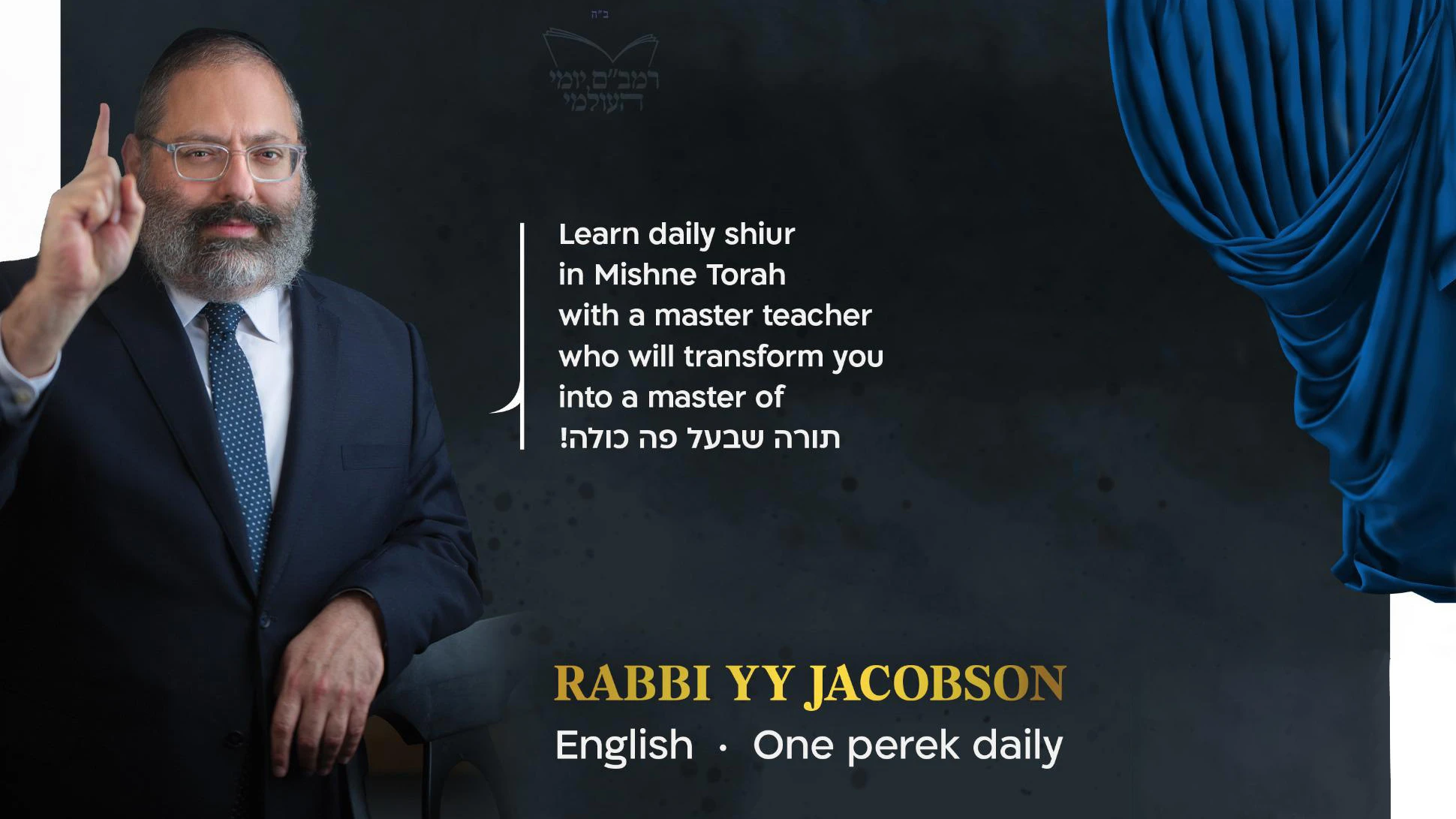
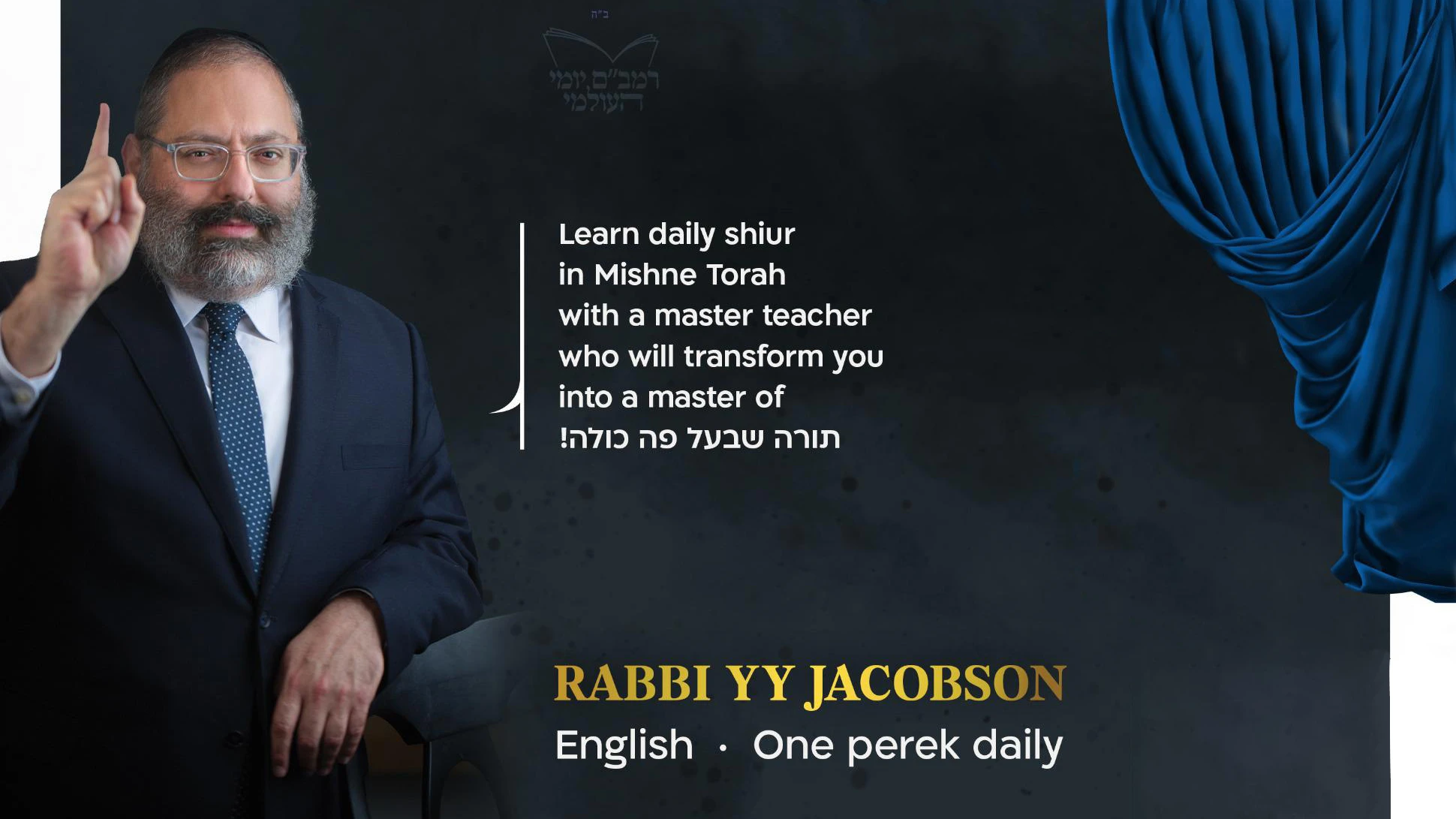
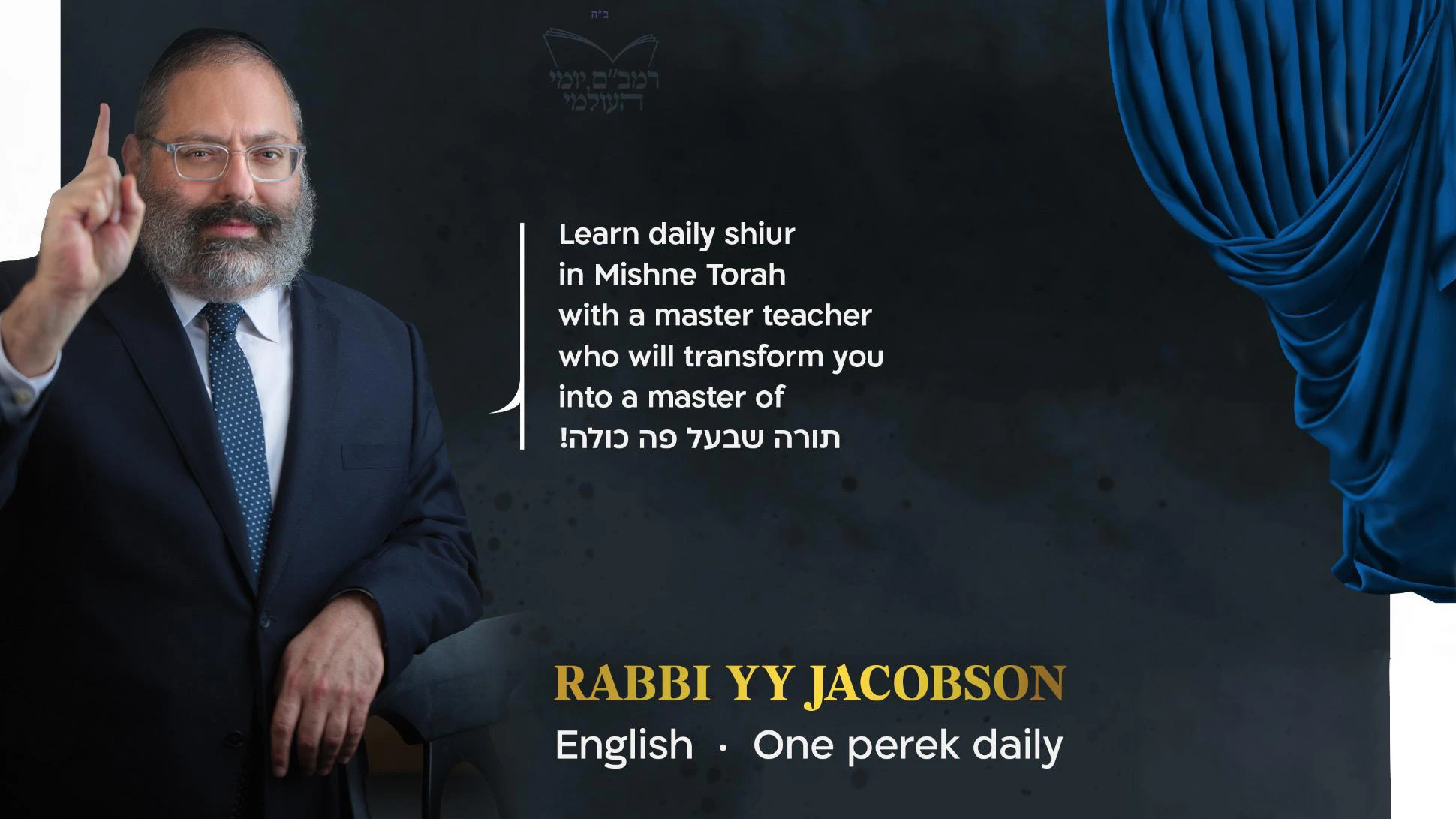
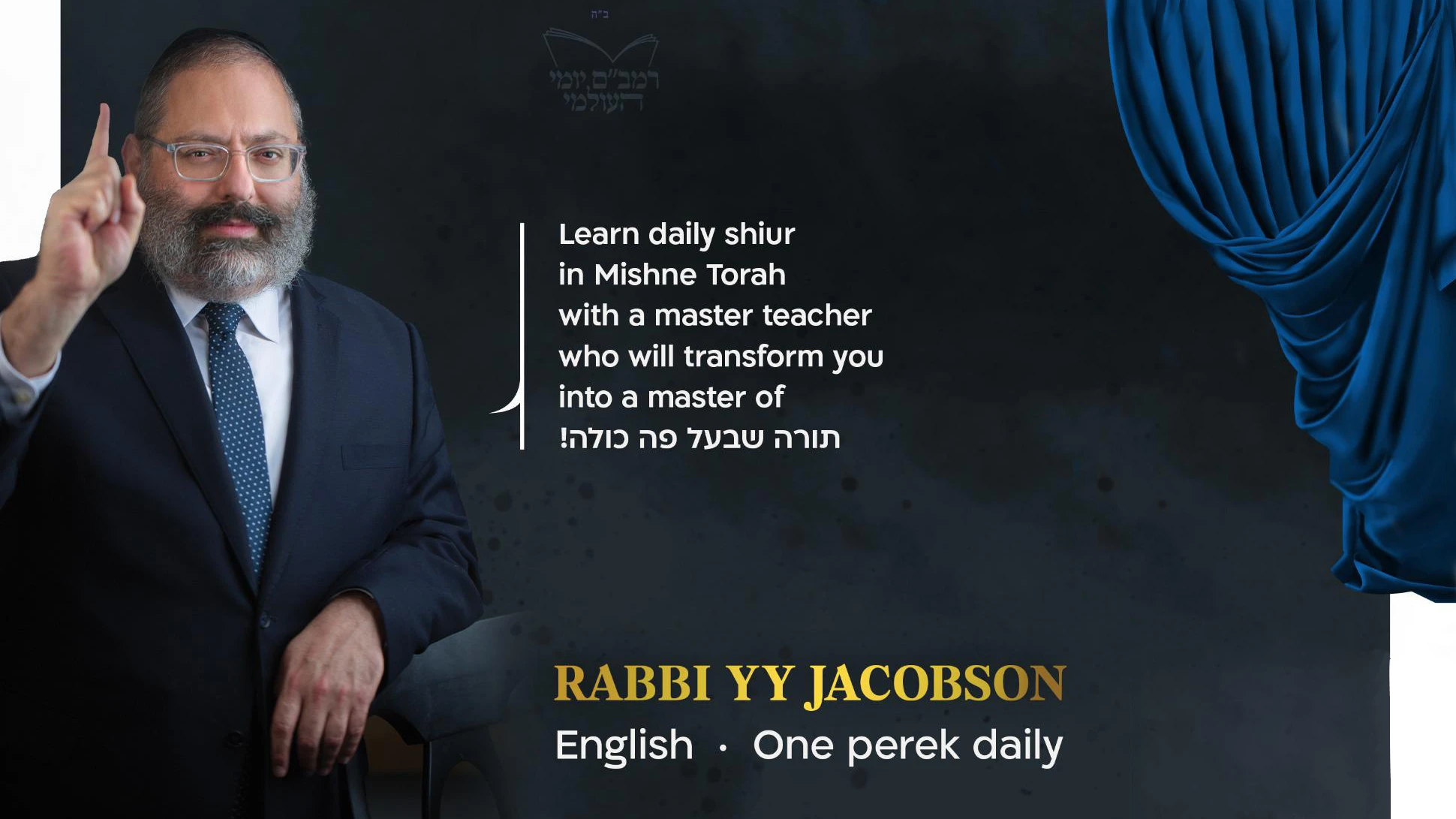
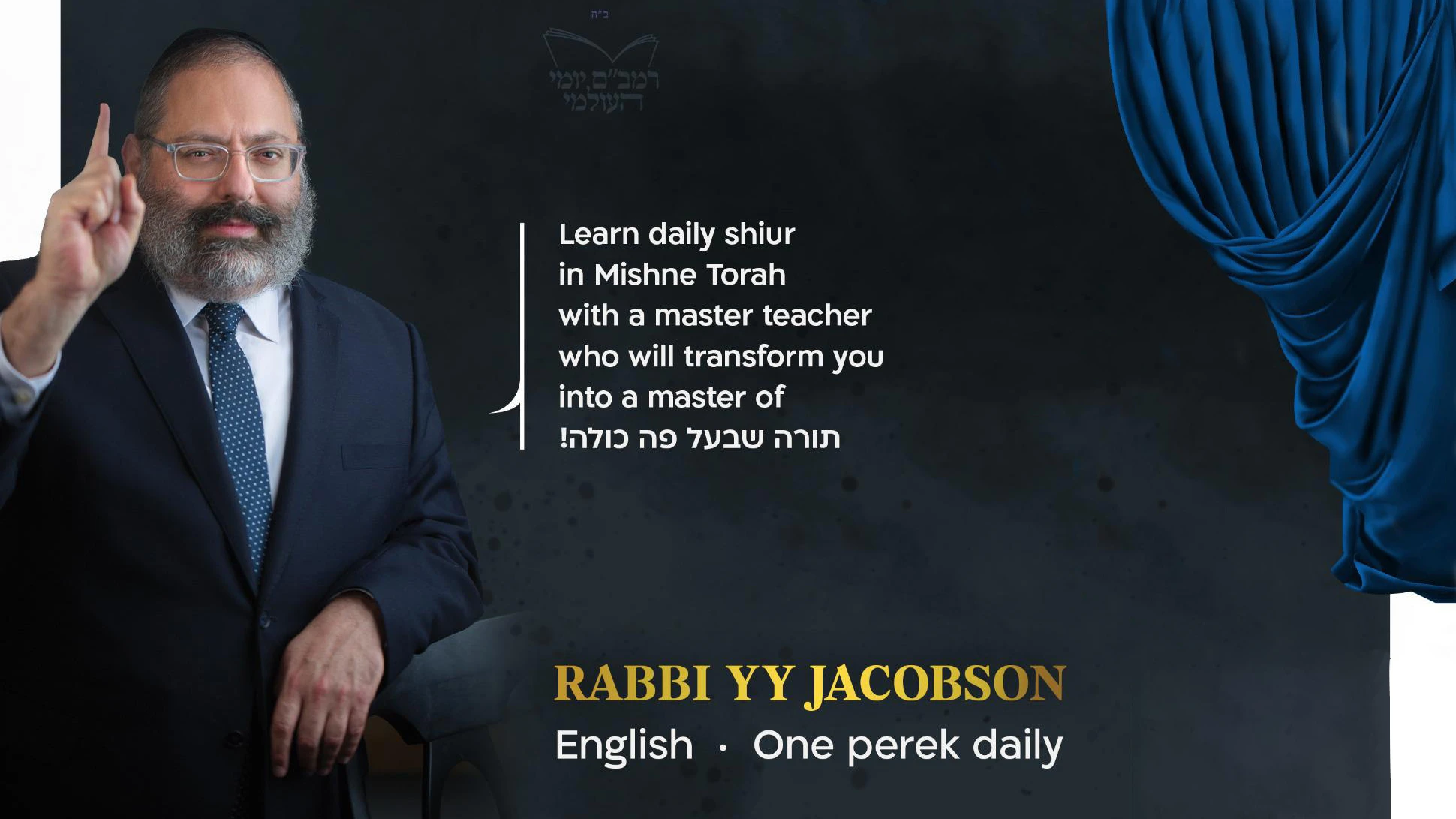
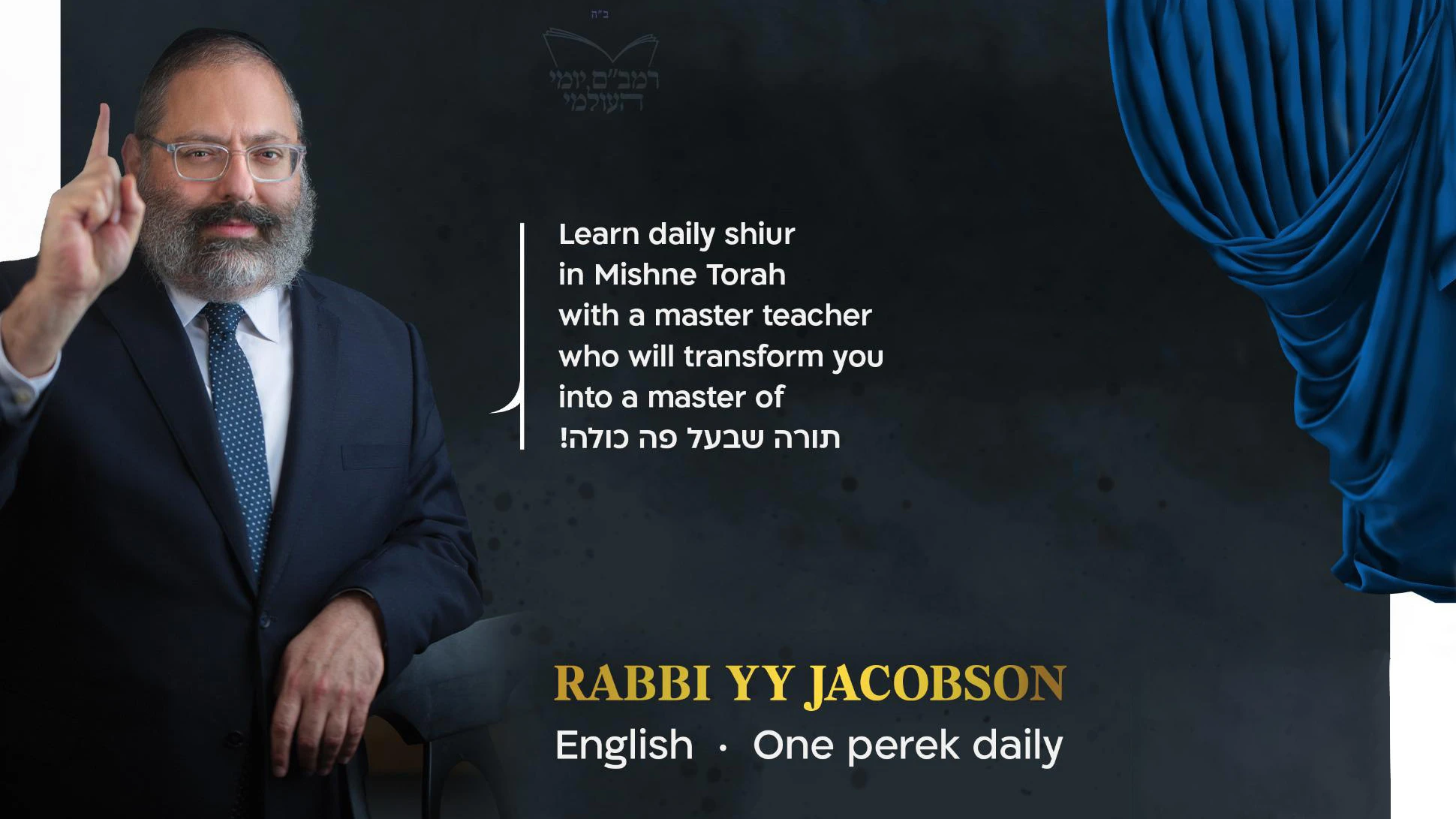
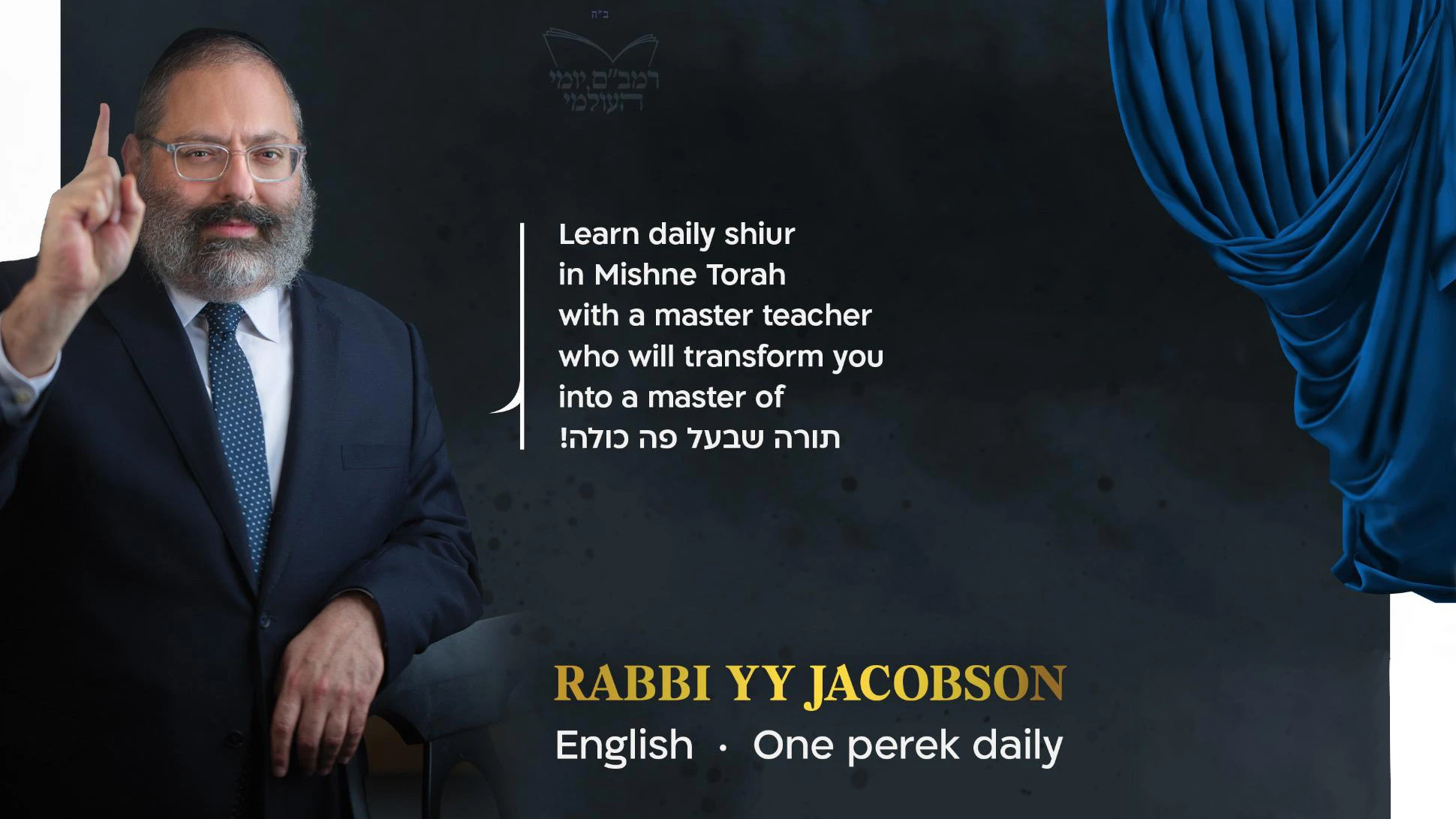
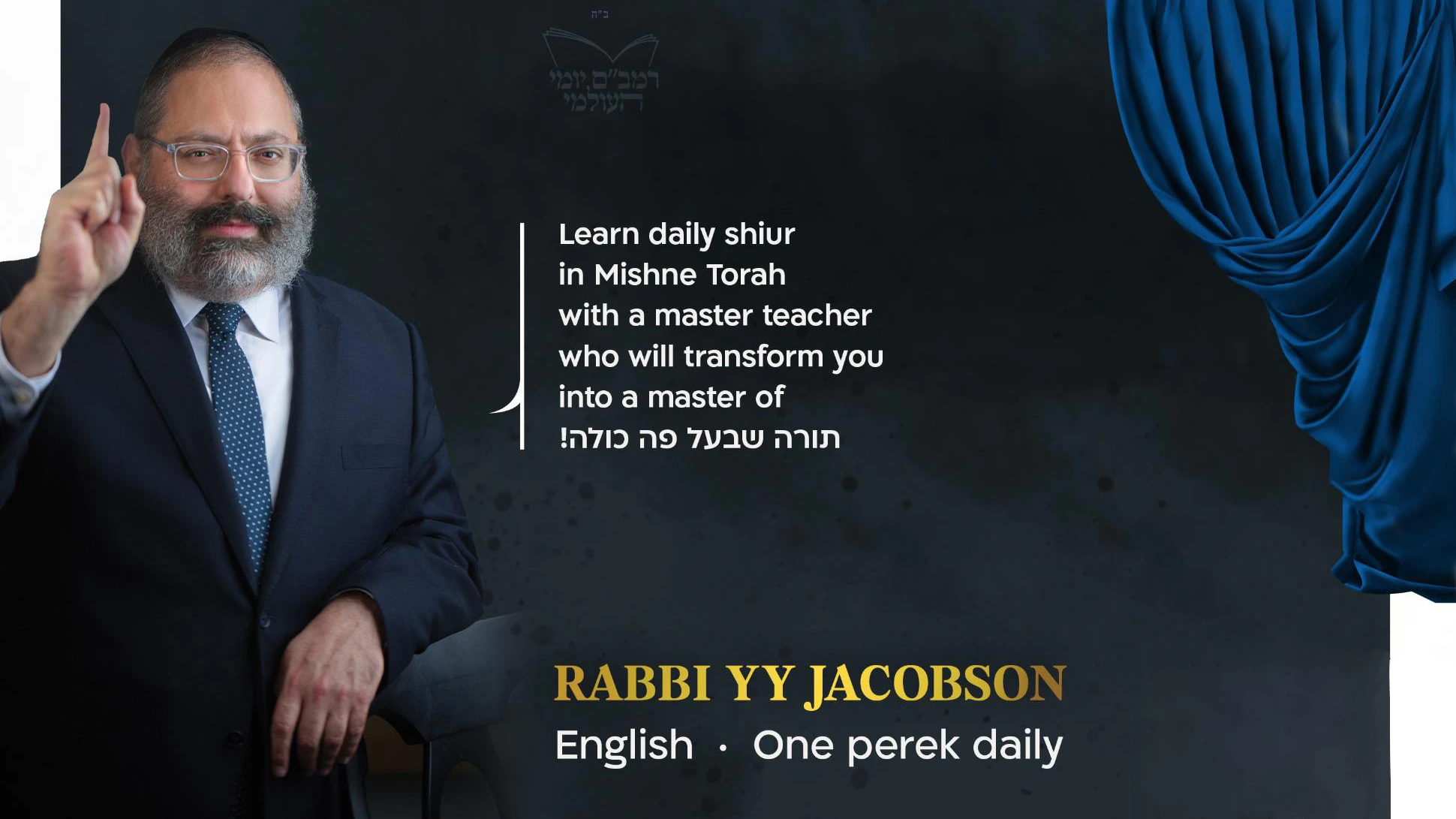
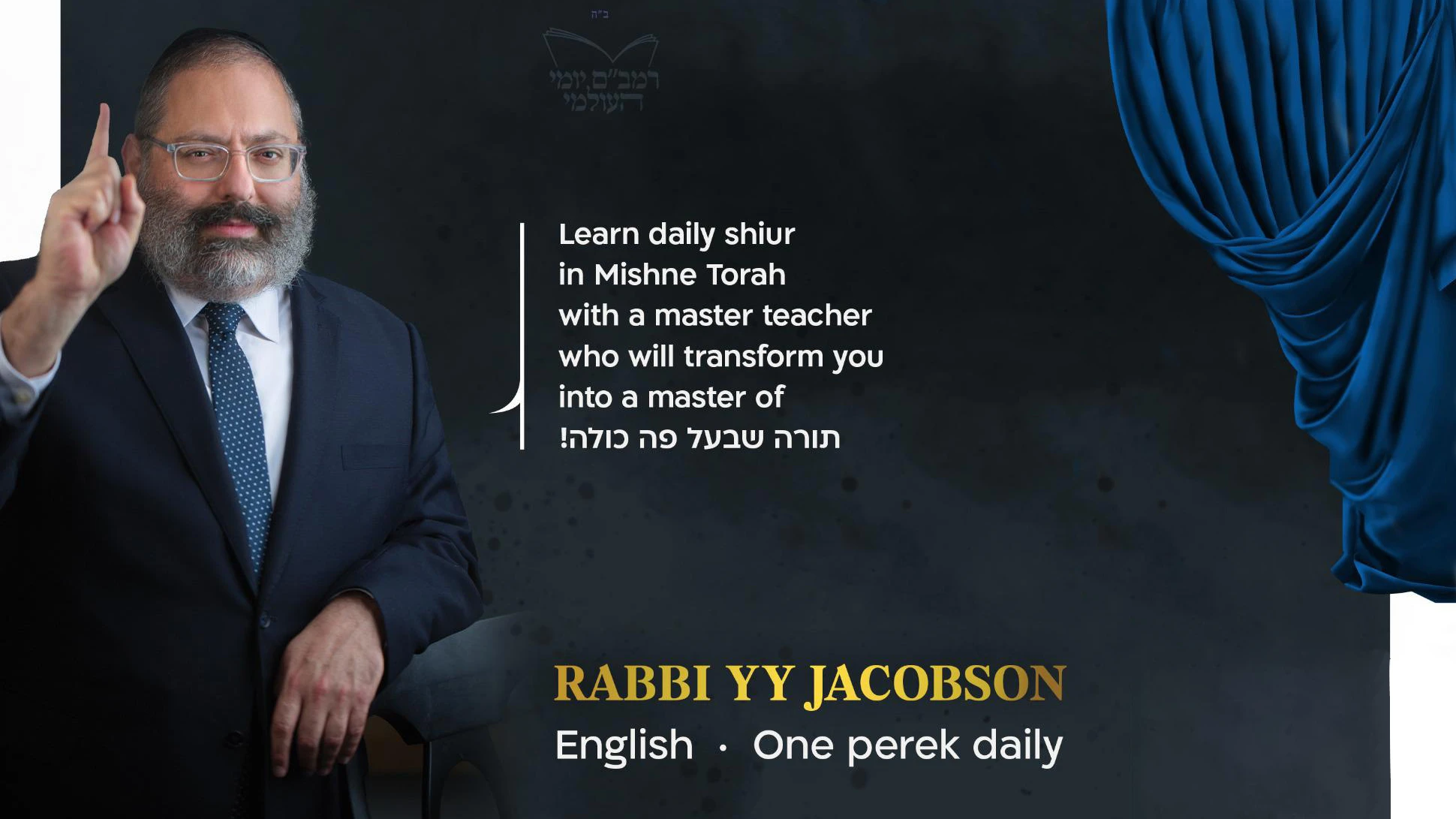
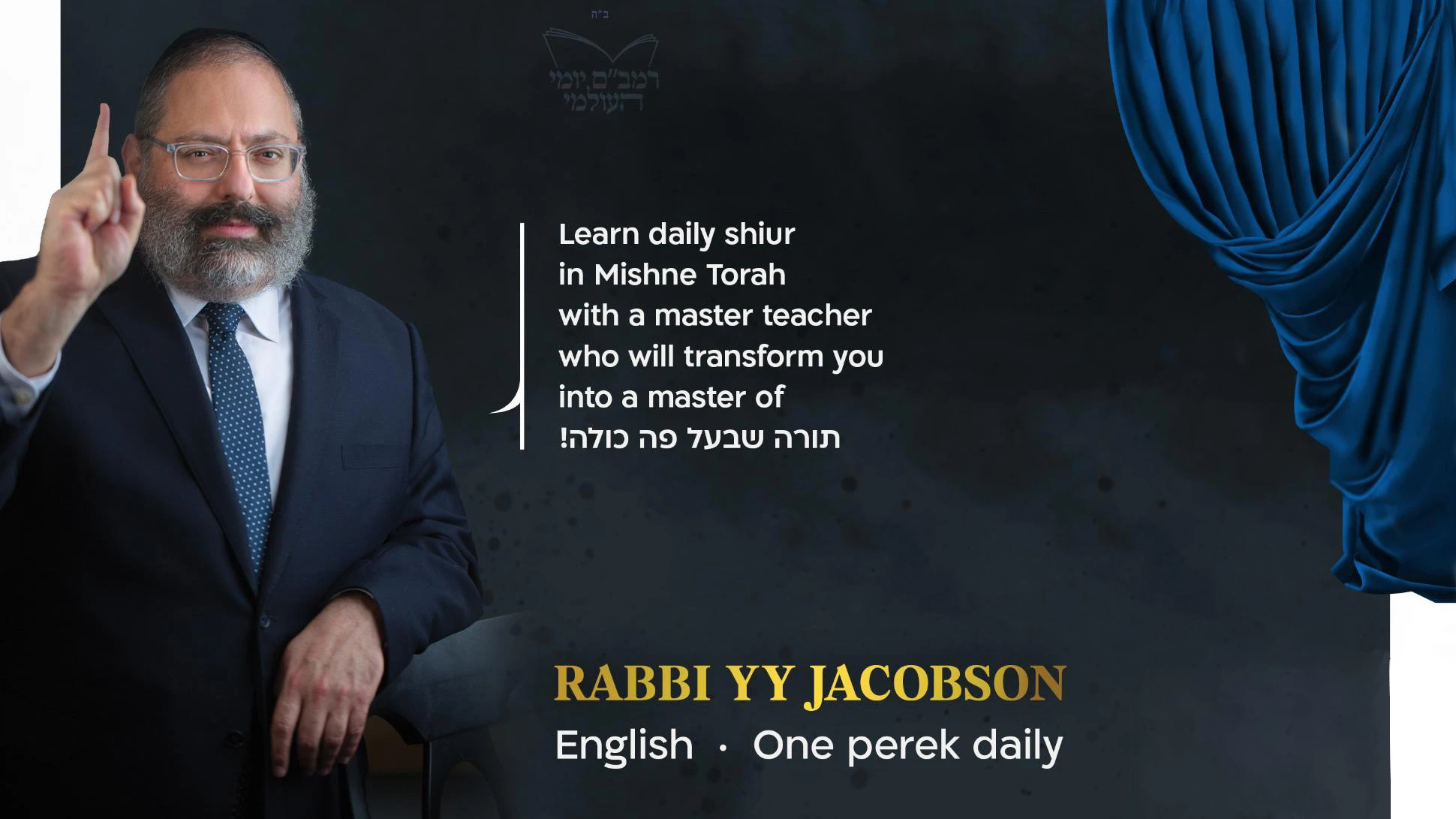

Please leave your comment below!
Moshe -4 years ago
Chevra
we have great questions but no answers today.
Reply to this comment.Flag this comment.
Anonymous -4 years ago
Halach mekabel more than the speaker gemara kiddushin
The Ravs explanation can be supported by a similar idea in the gemara kiddushin
Reply to this comment.Flag this comment.
Sara -4 years ago
Fine line between doing something to repair the world...
and lashon harah. Who determines which it is? Not so clear (in my opinion) sometimes.
Reply to this comment.Flag this comment.
Moshe -4 years ago
no negative speech even if true always?
Pedophile? Covid infected person ignoring quarantine orders going among the vulnerable?
Etc. Etc.
Reply to this comment.Flag this comment.
Anonymous -4 years ago
Question for Rabbi YY
Reply to this comment.Flag this comment.
Moshe -4 years ago
halacha 7 says no revenge
Amalek and other nefarious tribes in the Chumash?
Naziis? Did the mossad do wrong by hunting down the terrorists who murdered Israelis?
Etc
Reply to this comment.Flag this comment.
Anonymous -4 years ago
Kofer beikur
The first explanation given that one denies because he doesnt see the divine in the world and the person- would apply seemingly to many averos bein adam lechavero to have hatred, machlokes, nekamah, netirah so why mention this only by lashon harah seems more correct the other explanation?
Reply to this comment.Flag this comment.
Moshe -4 years ago
Hashem created the world thru speech.....
but He gathered dust to make man. .
Reply to this comment.Flag this comment.
Sara -4 years ago
Lashon Harah
Lashon hara - definately a bad thing to do. I'm not sure if Rambam addresses the exceptions. And maybe he does and you will discuss. But the exceptions convolute it all. If there are exceptions, who decides it's an exceptions. I know Chofetz Chaim wrote extensively on this where he tries to claify, but so many people think the exceptions are the rule. It becomes a crazy crazy situation in some cases. Can you address this briefly?
Reply to this comment.Flag this comment.
Sara -4 years ago
Even the exceptions for example if a person knows something about someone who is engaged to someone else, and so the intent is to save the other person from the thing that is supposedly wrong about "bad" person, maybe they don't know the whole story. Maybe there are circumstances that made the "bad" person do something that was not really bad. But the sharing of information lacked all the truth. It's very convoluted. It's not necessarily objective or even totally true. So maybe the best thing is to just keep quiet. And yet, what if the information is absolutely true. How can we know. And maybe if it is true, it was only true for those two people, Maybe things would be different for the new person.
Reply to this comment.Flag this comment.
Anonymous -4 years ago
Halacha 2
Clarificaton: Even though the Rav is learning the Rambam in the simple reading, but some commentators say only if intent to start a fight or because of hate etc. not stam a yenta
Reply to this comment.Flag this comment.
Sara -4 years ago
Questions about Chapter 6
Questions about Chapter 6 –
Posek 7 says “Whoever has the possibility of rebuking (sinners)) and fails to do so is considered responsible for that sin, for he had the opportunity to rebuke the sinners” Does this mean that only the person who fails to do so is responsible for the sin and not the person who sinned? Or are they both responsible? Also rebuking others can be a very difficult thing to do. It requires making a judgment about someone else’s behavior and deciding it was wrong. And even if it’s done in private, the person being rebuked is likely to become embarrassed and maybe even humiliated. Sometimes we might not know what’s behind the behavior. But the halacha according to Rambam seems pretty clear, that one has an obligation to do so? And how does all of this relate to lashon harah?
Posek 9 says that “it is pious behavior if a person who was wronged by a colleague would rather not admonish him or mention the matter at all … and forgive him totally without bearing any feelings of hate or admonishing him”. If nothing is said because the person who was wronged truly forgives and doesn’t harbor any ill feelings or hatred towards the other, the other might never know that he wronged someone. I guess that is a consequence of forgiving? The person doesn’t need to know? Seems counter to the mitzvah/obligation to rebuke. I guess the point and important part is that there is truly no ill feelings or hatred in one’s heart?
Reply to this comment.Flag this comment.
Moshe -4 years ago
My guess: if someone does wrong in general the one in a position to rebuke effectively must do so. But, if the wrong was done to that person himself, the highest level is to forgive. And if the wrongdoer never realizes, then it might happen again with another. So be it. The next highest level is to rebuke properly. One lower level is to just do nothing, not forgive and not rebuke.
One rule is to rebuke.
Another rule is not to say anything that will not be listened to
Contradiction.
How to do both?
One must make an educated guess if he will be listened to. If not, zip it. If yes, rebuke.
Reply to this comment.Flag this comment.
Anonymous -4 years ago
Halacha 7 advice on this halacha -Rambam, Rabenu Yonah Rav Dessler
Reply to this comment.Flag this comment.
Alizah Hochstead -4 years ago
Having trouble getting in again
I can't get in again Has it begun?
Reply to this comment.Flag this comment.
Sara -4 years ago
not yet
Reply to this comment.Flag this comment.
Anonymous -4 years ago
Images come out below?
Reply to this comment.Flag this comment.
Anonymous -4 years ago
I keep reloading but it hasn't started as far as I can seem
Reply to this comment.Flag this comment.
Moshe -4 years ago
Hello Aliza. Ths "moshe" here is moshe Isenberg. Now in monsey. Regards
Reply to this comment.Flag this comment.
Anonymous -4 years ago
Chapter 7
Halacha 1
Daas Umachshava
המרגל בחבירו עובר בלא תעשה שנאמר לא תלך רכיל בעמך. הרמב"ם מנה לאו אחד, והקדוש ה"חפץ חיים" בפתיחת ספרו מונה שבע עשרה לאוין וארבע עשרה מצות ושלשה ארורים שעלולים לעבור אם מדברים לשון הרע, ומונה שם לא תלך רכיל בעמיך, לא תשא שמע שוא, השמר בנגע הצרעת, לפני עור לא תתן מכשול, השמר פן תשכח את ה' אלקיך, לא תונו לא תשא עליו חטא לא תחניפו את הארץ וכו' ובעשין זכור את אשר עשה ה' אלקיך למרים, ואהבת לרעך כמוך, בצדק תשפוט עמיתך, ובו תדבק, והלכת בדרכיו, את ה' אלקיך תירא וכו' וכן ארור מכה רעהו בסתר או ארור משגה עור בדרך וכן איסור אשר לא יקים את דברי התורה הזאת, ודבריו מלהיבים להזהיר כל אחד לא ליכשל באסור לשון הרע שעונשו חמור מאד.
Maseh Rokeach
צא ולמד מה שאירע לדואג. נראה דכוונתו מבוארת דאף שאמר אמת מכל מקום נתכוון להרע שהרי שפיר היה יודע שעל ידי כן תעלה חמת המלך על אחימלך כדמוכחי קראי שהיה מתרעם שאול על עבדיו כי קשרתם כולכם עלי וכו' כי הקים בני את עבדי עלי לאורב כיום הזה וכתיב ויען דואג וכו' אמנם מרן ז"ל נראה שלא הבין כן שפי' דאף על פי שאין בדבר שום גנות למי שנאמר עליו וכו'. דאילו נשאל לאחימלך לא היה מכחיש דאדרבא הוא חשב לעבוד עבודת המלך כמו שהתנצל בדבריו וכו' ע"כ ודברי רבינו נוטים לפירוש מרן באמת ודו"ק:
Daas Umachshava'
יש עון גדול מזה עד מאד והוא בכלל לאו זה והוא לשון הרע. הרמב"ם לא ביאר למה אסור לשון הרע חמור מאסור רכילות, והרדב"ז (בלשונות סימן א') מפרש שברכילות מספר ומצפה לזה איזה תגמול שסיפר לו מה שמדברים עליו שהרי דואג האדומי בודאי ציפה משאול גדולה וכבוד על רכילותו, אבל בלשון הרע אין לו שום הנאה דמה יתרון לבעל הלשון.
והקדוש רבי חיים ויטאל זצ"ל מפרש שלשון הרע נקרא המספר ומי שממשיך לספר מה ששמע ממנו הוא רכיל, ולרמב"ם הראשון הוא שהתחיל ולכן חמור, ולראב"ד הרוכל הלוא הורג מי ששמע ממנו וכן מי שמדבר עליו ולכן חמור יותר.
ולדרכנו הלוא דברי הרמב"ם מאירים, שאסור רכילות היינו כשמספר דברים ששמע מאחר והוא לא רצה לגלות הדברים יותר ולפרסמם, אבל אין בהדברים גנאי וכל שכן שקר, ומ"מ הוא כרכיל שמציע לאחרים בשעה שאינו אלא דברים בעלמא ועובר בלאו, אבל כל שכן המספר לשון הרע שמגנה חבירו אף על אמת וכ"ש שקר הלוא עונשו חמור מאד.
Halacha 3
Daas Umachshva
אמרו חכמים שלש עבירות נפרעין מן האדם בעולם הזה ואין לו חלק לעולם הבא. הכ"מ מביא מקורו מערכין (ט"ז.) ואין רמז שם שאין לו חלק לעולם הבא, אבל בירושלמי פ"א דפאה מפורש כרמב"ם שלשון הרע חמור מג' עבירות, וכפל שיטתו בהלכות תשובה פ"ג (ה"ג) ושם מדמה בעלי לשון הרע למינים ואפיקורסים וכופרים בתחיית המתים וביאת הגואל ומשומדים וכו' ובעלי לשון הרע ובכולם מסיק שנכרתים ואובדין ונידונין על גודל רשעם וחטאתם לעולם ולעולמי עולמים ע"ש, הרי שביאר שיטתו בחומר עון לשון הרע.
ומפי מו"ר הגה"ץ רבי משה שניידער זצ"ל שמעתי ששאל בעצמו פי הקדוש החפץ חיים זצ"ל למה לא מרגלא אצלו בספריו דברי הרמב"ם שכלל בעלי לשון הרע עם מינים ואפיקורסים שנידונים לדורי דורות ואין להם חלק לעולם הבא, וענה לו שלא רצה להבהיל יותר מדאי, ופירש כוונתו שחשש שאדם עלול לחשוב כיון שבלאו הכי קשה לו לפרוש לגמרי מלשון הרע, וע"כ אין לו חלק לעולם הבא כמינים ואפיקורסים, עלול לפרוק מעצמו עול תורה ומצות לגמרי, ולכן לא פירסם חומר האסור כמינות ואפיקורסות ושנידון לעולמי עולמים כמוהם אף שליקט הרבה מאמרי חז"ל בחומר האסור ע"כ.
והמקבלו יותר מן האומרו. לא נתבאר מקורו, ובפיהמ"ש פ"א דאבות מביא דברי חז"ל שהמקבלו יותר מן האומרו, ומצאתי ב"קרית מלך" כאן שמביא שמפורש בחופת אליהו רבה פ"ד סימן ל"ד שהמספר לשון הרע לוקה פעם אחת והמקבלו יותר וגורם גלות לבניו, הרי מפורש שהמקבל לשון הרע עונשו חמור יותר.
ומסברא הטעם פשוט שהמספר הלוא רק מספר מה ששמע או ראה, אבל המקבל אין לו שום היתר לקבל שמועות בעלמא לרע על חבירו, ואם קיבל הדברים הלוא גורם נזק לחבירו שלא כדין, ועונשו חמור יותר מהמספר שדימה מאחר שראה או שמע ומוסר הדברים הלאה אין האסור חמור כ"כ.
Rav Avigdor Miller
Q:
How does a yeshiva bochur refrain from hearing loshon hara in his dormitory room?
A:
He should walk out of the room until the people go to sleep. Let him sit in the beis hamedrash until his chaveirim go to sleep. And in case they don’t go to sleep until late, he should tell them, “Chaveirim, please excuse me. I have to go to sleep and when you talk I can’t sleep; do me a favor, please.” Ask rachamim, mercy, from them, and then you go to sleep so that way you won’t hear loshon hara and you’ll also be able to get up for davening the next morning on time.
Rabeinu Yonah gives an eitzah like this: He says that when you hear loshon hara and you’re not able to rebuke the people – for some reason you can’t give them reproof and tell them it’s loshon hara – so at least don’t show any interest. Show a sad face, he says, an uninterested and bored face, and that will discourage them. He brings a possuk: ופנים נזעמים לשון סתר – “An unhappy face will dispel the false tongue” (Mishlei 25:23). If you show an unhappy face, that might quiet him down. But if you show an interested face – he’s talking to you and you show an interested face, a lively face – it means you’re encouraging him, “Keep on, keep on talking.” And he’ll keep on pouring loshon hora into your ear. But if he sees that you’re discouraged, you’re not interested, that will stop him from talking loshon hora.
So, let’s say there’s somebody in your house talking about something and you don’t want to talk. They’re wasting your time. Let’s say, it’s not even loshon hora, but it’s devorim b’teilim, idle chatter. So if it’s possible to show that you’re not interested in a way that wouldn’t insult him, then that will help to stop it.
Sometimes however, when the person is not talking loshon hora, it’s a mitzvah to let that person talk. Many times, for some people of lower character, talking a good deal helps them to feel happy. So if you’ll lend them your ears just as a donation, in order to let them relieve themselves, it’s a mitzvah as long as there’s no loshon hora involved. The truth however is, that it’s impossible. ברוב דברים לא יחדל פשע – “When many words are spoken, you cannot avoid loshon hora, that’s for sure” (Mishlei 10:19). So sooner or later, something will come up that’s forbidden. Therefore, it’s always better not to talk much.
When you look at your children and see the ones that don’t talk much, it’s a ma’alah, a good quality. And your grandchildren too. I look around at my grandchildren and I admire some of them, I love some of them very much – the boys and girls who don’t talk much. It’s a very big ma’alah. They’re intelligent, but yet they don’t have the habit of opening their mouths and talking. It’s a midah tova ad me’od, an exceptionally good quality.
And the gemara says it’s a sign of aristocracy, of good yichus. שתיקותא דבבל היינו יחוסא – “In Bavel silence was always a sign of aristocracy” (Kiddushin 71b). If they wanted to marry into a family, and they wanted to know if it was a good family, so they couldn’t always investigate their antecedents, their ancestors. So what did they do? If they saw that it was a person who didn’t talk much, or his family didn’t talk much, so they surmised that it must be a good family, a family of good pedigree. In Bavel that’s how they judged: שתיקותא דבבל היינו יחוסא – Silence, that was their pedigree.
And so in general, if you want to make a good impression, keep your mouth closed. I wrote a poem once:
In lion’s skin an ass did hide
And none could know who was inside
Until himself he did betray
By opening his mouth to bray
That’s an Aesop’s fable. A lion once left his skin on the road, and a donkey came along and found this lion-skin. So this donkey thought, “Oh, what an opportunity! I can wear the lion-skin and now people will be afraid of me!” So he put on the lion-skin to make himself look like a lion, and everybody was afraid of him. He was so happy! He was so excited that he opened his big mouth and he brayed. And now all the animals in the forest realized: “Oh,” they said, “It’s nothing but a donkey!” So they took their sticks and beat him over the head.
And so, you’re a good-looking young man, your face is tzelem Elokim – I’m looking at you right now and you make a good impression on me. You’re a good-looking girl, a nice decent girl. Open up your mouth however, and you bray, and now you spoiled the whole thing! That’s why silence is golden – silence makes you look better.
-----
(ה) ועוד אפשר לומר בטעם ותלמוד תורה כנגד כלם כי על ידי ת"ת מתקן עון לשון הרע שהוא כנגד ע"ז ג"ע ש"ד והן בעון מצוי הרבה ועוד רעה חולה שאין אדם מרגיש בו ואין שם על לב חומרו ונזקו וגם כתבו המקובלים ז"ל כי גלות המר הזה לתקן לשון הרע ועל ידי ת"ת יש לו תקון ועל כן תלמוד תורה כנגד כולם:
Kiseh rachamim on avos derav nasan
-----
Halacha 6
Reply to this comment.Flag this comment.
Anonymous -4 years ago
epilogue to Chapter 4
Did Rabbi YY give the class on the epilogue/introduction, to Hilchos De'os chapter 4 on Monday @1:30?
I can't see it uploaded.
Reply to this comment.Flag this comment.
Anonymous -4 years ago
I also can't find that class and I did tune in at the appointed time but did not see it air.
Reply to this comment.Flag this comment.